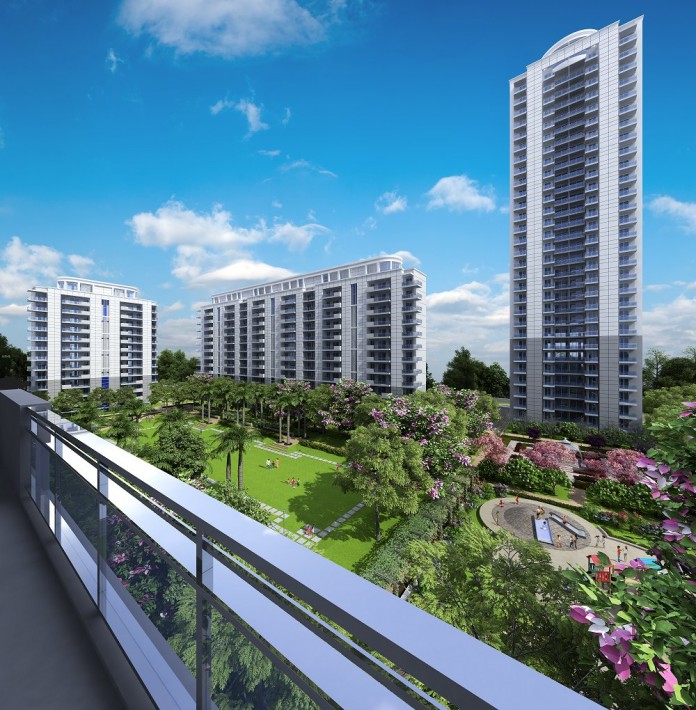Gurgaon, March 27: Has the slowdown in real estate sector, the Modi government’s focus on affordable housing and demonetization of big currency notes weakened the demand for luxury housing? Recent reports point out otherwise. According to a JLL report, approximately 45,000 luxury housing units were launched in financial year 2016 with top 9 cities constituting 21% of the total residential launches.

Important Announcement – EasyShiksha has now started Online Internship Program “Ab India Sikhega Ghar Se”

Bengaluru leads the list with 30% of luxury home launches followed by Mumbai which comprised 17% of the launches across India. Bengaluru also leads in luxury home sales constituting 29% of the total in financial year 2016 followed by Mumbai reporting 16% of the sales. Pune comes third with 15% of the sales. In total, 47000 luxury units were sold in top 9 cities accounting for 17% of the total residential sales in the country.
“Evidently, the much-hyped gloom and doom story is vastly exaggerated. Media stories–which predicted that luxury housing in India is finished–lost sight of the fact that luxury housing caters to a specific segment of demand which, like the demand for budget and mid-income homes, has not gone away. India’s wealthier home buyers still want high-class homes with all the bells and whistles of sophistication in great locations,” Ashwinder Raj Singh, CEO (residential services) of JLL India, said.
Top Software Engineering Courses
Vivek Singhal, spokesman of M3M Group, echoed a similar sentiment. “The share of luxury housing in the overall housing market may come down marginally. However, this is due to the overall increase in the market size. With rapid GDP growth, India is poised to become a $4-trillion economy in the next 5-7 years. This will result in substantial increase in the number of millionaires and HNIs, driving the demand for luxury housing. However, luxury housing requires a high level of meticulous planning, positioning, and branding of projects,” Singhal said.
According to industry experts, though luxury housing is facing low demand and low sales, it will definitely face momentum ahead. The demand for luxury and ultra-luxury housing is different from rest of the property market as their dynamics are different.
“The demand for luxury homes is city specific and differs from one location to another. There is an increased demand for luxury housing, but it is mainly driven by factors like exclusivity, desirability, and uniqueness of the project. After demonetization, most buyers felt that prices would decline by 2%-30%, but there is no correction in the market with developers holding prices. The demand also depends upon the product that catches the attention of the HNI or UHNI segment, which is not averse to paying a premium for property,” Avnish Yadav, deputy GM (residential services) at Colliers International India, said.
Contrary to one’s expectations, luxury homes have even witnessed rise in prices.
“Luxury housing segment has successfully averted any downturn seen in the real estate sector. In fact, there has been a steady appreciation in prices over the last few quarters in most cities. As far as Gurgaon is concerned, luxury homes saw a 20-25% annual price rise. Also, with the Indian economy slated to grow at a steady pace, it is reasonable to expect a rise in demand for luxury housing. Propelled by higher standard of living and increasing disposable income, home buyers are looking to invest in high-end properties which offer best of the amenities and international standards of living,“ Harinder Dhillon, VP (sales) of DLF, said.
Empower your team. Lead the industry
Get a subscription to a library of online courses and digital learning tools for your organization with EasyShiksha
Request NowThe JLL report predicts the Indian real estate market will almost double to $180 billion by 2020 from $93 billion in 2014, thereby making up 13% of the GDP, compared to the current share of 5-6%.Luxury housing comprises almost 4-5% of the total real estate market and thus share of luxury housing is bound to increase.
“The richer segment may be in a wait and-watch mode for the time being, but they will surely go for a piece of property which suits their requirement and meets their lifestyle,” Rahul Singla, director of Mapsko Group, said.
ALSO READ: Second-cb-naat-machine-installed-in-gurgaon-govt-facility
Get Course: Basic-Computer-Skills-Certification-Course









































































